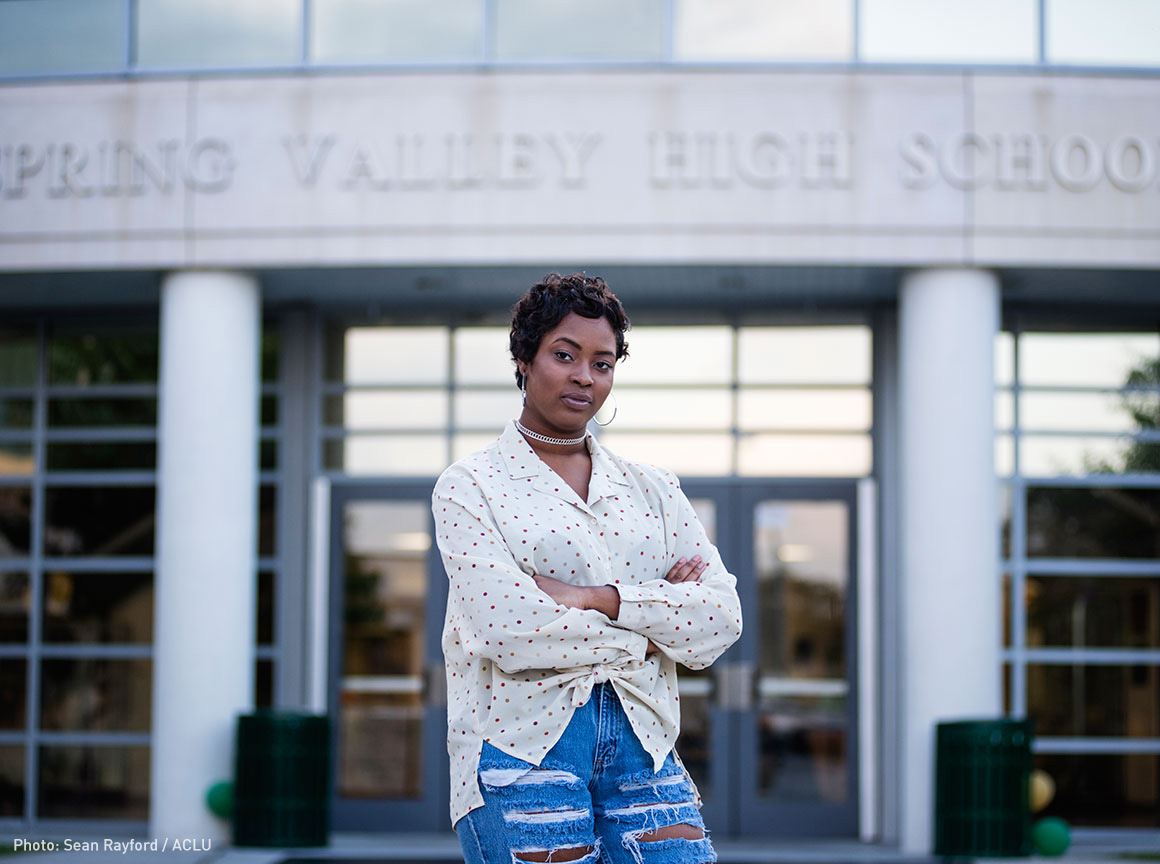
RICHMOND, Va. — The Fourth Circuit Court of Appeals yesterday handed down a victory for students’ rights, ruling that South Carolina’s “disturbing schools” law poses a substantial risk to student freedom of expression and due process, and that the plaintiffs in Kenny v. Wilson deserve their day in court. The law allows children to be arrested and prosecuted for any behavior a school deems “obnoxious,” such as failing to follow a teacher’s instruction or cursing at lunchtime.
The American Civil Liberties Union and the ACLU of South Carolina filed Kenny in 2016 on behalf of Niya Kenny and other student plaintiffs. At Spring Valley High School in Columbia, Kenny was arrested and taken to a detention center because she had cried out after she saw a school resource officer picking up a classmate and throwing her to the ground.
Sarah Hinger, staff attorney with the ACLU’s Racial Justice Program, had the following response:
“The court has sent a clear message: rather than funnel children into the criminal justice system over minutiae and lawful activities, schools must recognize and protect students’ rights. This message is particularly important in this time of student activism.
“Under South Carolina’s so-called ‘disturbing schools’ law, Black students are nearly four times as likely to be punished than white students. That means that Black children are disproportionately saddled with criminal records and other burdens that come with charges and arrests.
“In its ruling, the court recognized the law’s discriminatory impact, finding that ‘the threat of enforcement is particularly credible’ for plaintiffs who are Black, and for those who have disabilities.”
For more information:

The American Civil Liberties Union filed a federal lawsuit challenging South Carolina’s “disturbing schools” and “disorderly conduct” laws. The laws allowed students in school to be criminally charged for normal adolescent behaviors including loitering, cursing, or undefined “obnoxious” actions on school grounds and encouraged discriminatory enforcement against Black students and students with disabilities. The Fourth Circuit Court of Appeals affirmed the district court ruling that enforcing these laws against students was unconstitutional, affirming that subjecting students to criminal penalties under such vague rules interferes with their education and their future, and produces stark racial disparities. This decision should be instructive to the many school districts across the country where students continue to be charged with ‘disorderly conduct’ and similar vague crimes.
Source: American Civil Liberties Union
Previous press release about this case ACLU Challenges South Carolina ‘Disturbing Schools’ Law August 11, 2016 10:15 am Next press release about this caseFourth Circuit Rules that South Carolina Laws Allowing School Students to be Criminally Charged Were Unconstitutional
February 23, 2023 12:00 pmSign up to be the first to hear about how to take action.
By completing this form, I agree to receive occasional emails per the terms of the ACLU’s privacy statement.
By completing this form, I agree to receive occasional emails per the terms of the ACLU’s privacy statement.